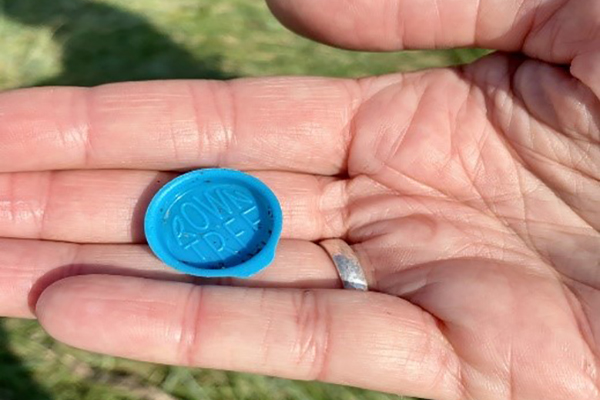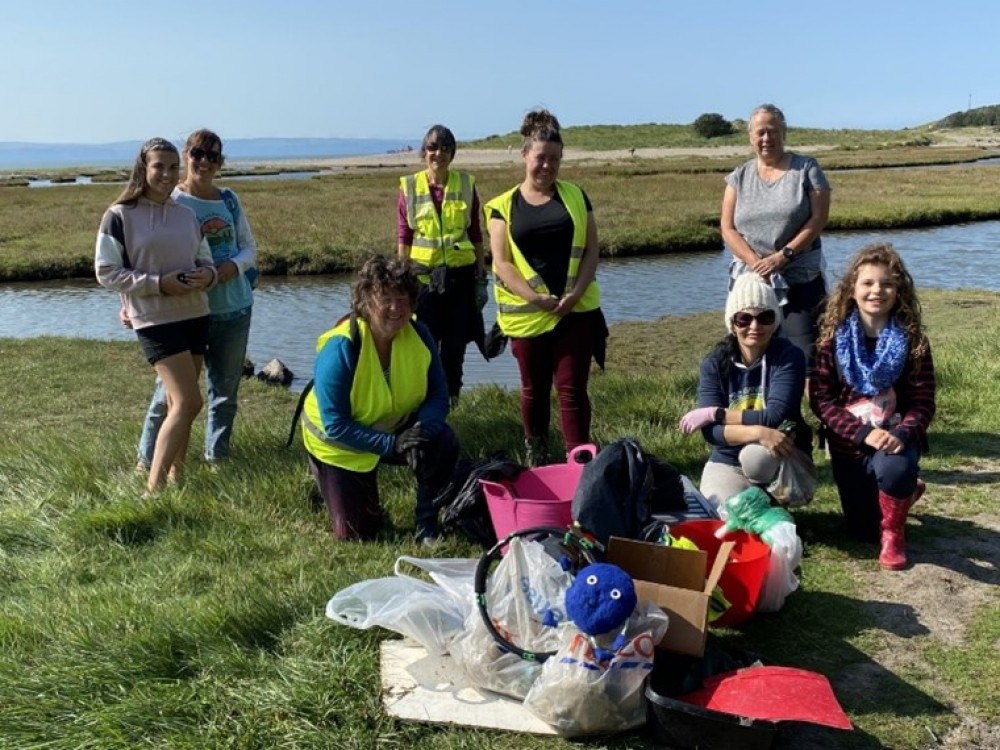A sustainable life

Becoming an eco-campaigner in the workplace
As a wild swimmer and lifelong fan of the outdoors, I am acutely aware of the impact that the human race can have, and is having, on the environment. Many a wild swim ends with a quick beach/river/pond clean (now a hugely successful social media campaign and charity) or something more involved, depending on the time available and the extent of the problem encountered.
I, and many others, have been doing this for a while now and the mainstream media does, from time to time, highlight the problem with high profile features on what the pollution is doing to our planet. But is it making a difference?
 It is apparent, from the waste being found by the outdoor community, that we are fighting a losing battle. I recently teamed up with a local eco-campaigner to do a mass beach clean on one of the local salt marshes. This Site of Special Scientific Interest (SSSI) was literally infested with plastic and other items of pollution that had been brought in on the tide. Everywhere we looked we could see the scar of human existence on this place of outstanding natural beauty. Plastic waste poked out of the water, wrapped itself around plant life, and offended the aesthetics that nature had created at every turn. The rather haphazard way that the incoming tide had thrown the plastic around made it seem like the plastic objects had had their own apocalyptic traumatic battle.
It is apparent, from the waste being found by the outdoor community, that we are fighting a losing battle. I recently teamed up with a local eco-campaigner to do a mass beach clean on one of the local salt marshes. This Site of Special Scientific Interest (SSSI) was literally infested with plastic and other items of pollution that had been brought in on the tide. Everywhere we looked we could see the scar of human existence on this place of outstanding natural beauty. Plastic waste poked out of the water, wrapped itself around plant life, and offended the aesthetics that nature had created at every turn. The rather haphazard way that the incoming tide had thrown the plastic around made it seem like the plastic objects had had their own apocalyptic traumatic battle.
Marveling at our finds, it was surprising to see the amount collected in such a short time, and the variety of the objects was incredible. From pieces of a kitchen, bits of a car, fishing line, washing-up bowls, plastic bottles, carrier bags, crisp packets and a 31-year-old Smartie lid (we knew it was at least this old as the manufacturing company that makes them changed the lid design that year - it was pristine!).
The following day I was reflecting on the events of the previous day and discussing them with my fellow AHP colleagues. As I was telling the story with gusto of the 31-year-old Smartie lid, I became aware that we were surrounded by another plastic apocalypse waiting to happen: single use instruments and PPE products such as visors, aprons, gloves and masks. Why was I not an eco-campaigner at work?
Discussing sustainability within the healthcare working environment often leads to thoughts of the materials used but seldom to other ways of protecting resources. Our temporary abnormal way of working due to COVID-19 has presented opportunities to preserve our resources. Virtual consultations, necessitated by a global pandemic, have meant that patients have been seen by the right person at the right time, but without them undertaking a potentially risky journey to a healthcare site, with the consequent reduction in their global footprint.
The group discussed prevention at the beach clean, resulting in yet more transferable themes. Successful, meaningful prevention strategies, used well in healthcare, will protect future healthcare services from collapsing under the strain. Some of the models used in healthcare strategies are very reactive and instead of commissioning more healthcare professionals to deal with an increasing number of patients, more energy should be put into tackling the rise of co-morbidity through chronic disease by reducing obesity and smoking rates and through early behaviour change intervention, such as exercise referral schemes, lifestyle support and increased access to safe outdoor spaces and affordable gyms.
As we listen to the worrying statistics about Antarctica’s melting glaciers and read the Carbon inequality reports there has never a been a better time to be more sustainability literate in both our working lives and our private lives. Can you be the change that society needs? Can you influence others in your network?
We absolutely need a greener NHS working towards net zero carbon emissions.
Think before you jump in the car for a work commute:
- Can you cycle or walk? Doing either of these will help the environment, and the long term fitter you could potentially be less of a burden on the healthcare system of the future.
- Are there better access points that will create a more prudent, more sustainable healthcare system?
- Can you create virtual multidisciplinary teams as a standard to protect resources?
Think and act. Don't wait, or it might be too late.
Keri Hutchinson
Public Health Project Lead
The College of Podiatry
